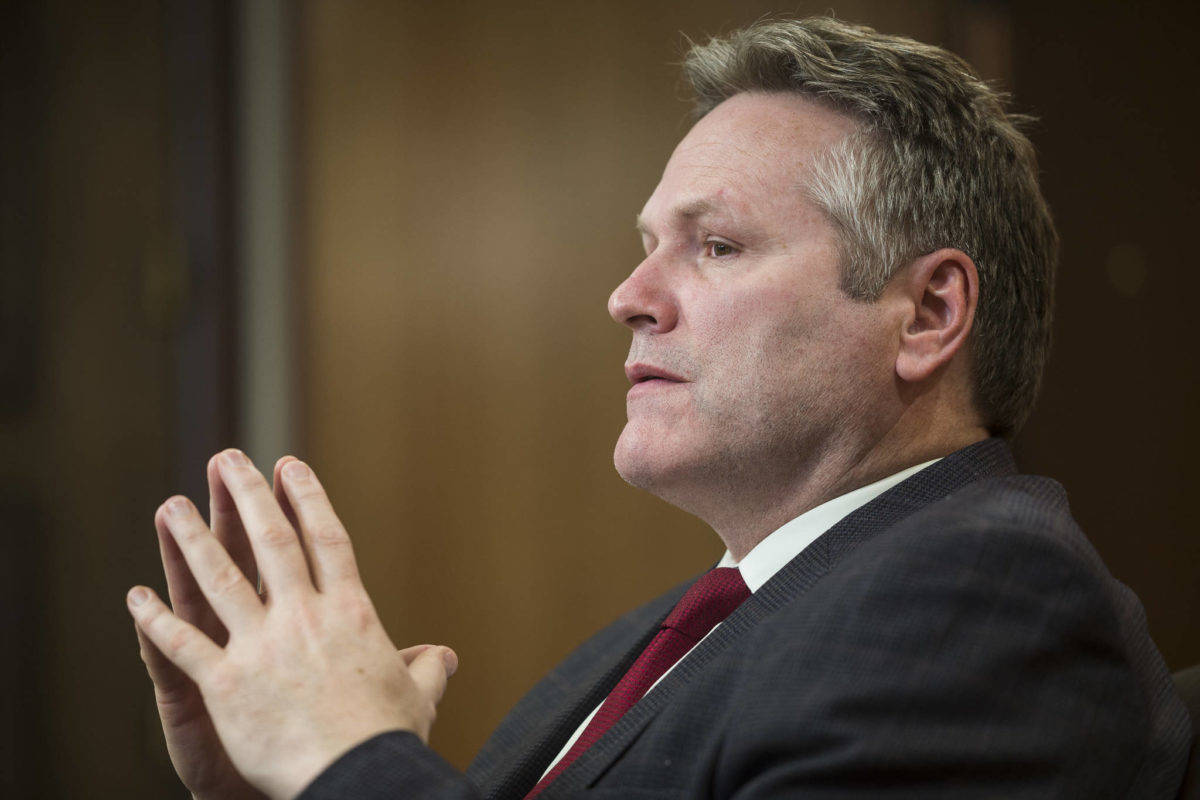Gov. Mike Dunleavy, as a person, claims to be strongly pro-life.
Yet as governor, his budget and subsequent vetoes disproportionately affect the poor and vulnerable and have little regard for the life of the child once he or she enters into this world. His administration seems to have a blind spot when it comes to the crippling social challenges in our state: the opioid epidemic, the suicide epidemic, the child maltreatment and sexual assault epidemic (highest rate in the nation), and out of control health care costs. His approach seems to be to limit access to solutions for those who have little to no resources.
Being pro-life means having a consistent regard for all persons throughout their lifespan, not just the unborn child. A budget advocating this stance would reflect concern for a baby born: with a disability, to a single parent struggling with addiction, who resides in a homeless shelter, whose parent is incarcerated, in the foster care system, in the care of his or her grandparents who themselves are living in poverty, to a mom in shaky recovery from addiction. All these scenarios are recurring in Alaska on a daily basis. What about these babies as they grow into adulthood with the deck stacked against them from Day One? The social and economic fallout from early childhood adversity reverberates across the life span. However, with support from families, schools and community and yes, in partnership with the state, these effects can be mitigated.
Dunleavy’s budget is not considering those affected by the above circumstances, and he’s cutting preventative services aimed at addressing early adversity. These cuts will cost the state far more than spent on these programs in the long run.
His cuts to public health nursing are one such example of preventative care that is impacted by shortsighted budgeting. A case in point, they are the agency the doctor or hospital obstetric nurse would call when they are sending a new mom home and they are concerned about her ability to care for her baby due to history of addiction. The public health nurse can follow-up with resource counseling, education and linkage with services. Would we rather go this route or wait until Office of Children’s Services is called to intervene? Would you not rather give this emerging family a fighting chance and thus save our valuable resources in the long run?
Cuts to preschool programs are another example of a preventative program aimed to prepare kids from disadvantaged backgrounds for kindergarten, thus being prepared to learn the skills they need to succeed. Research resoundingly supports early childhood education as just such a tool, again, mitigating the effects of poverty and adversity.
Cuts to home visiting programs are another example of a preventative solution that Dunleavy is tossing away with shortsighted prioritization. As a school nurse, I recall a conversation with a single mom of two lively, little boys. She was working hard to improve her lot in life but didn’t always have access to decent, safe childcare. Despite this hurdle, the boys absolutely loved to read which is a rarity in our screen-addicted culture. I asked her how that came about and she said her Parents as Teacher home visitor helped her understand the vital importance of reading daily to her boys and limiting their screen access. She was encouraged to continue breastfeeding when it became difficult as she returned to work when her baby was just 6 weeks old. Research shows us that breastfeeding builds a healthier immune system and forms a strong bond between the child and their primary caregiver, which is an essential developmental milestone. Ability to fight off illness and a feeling of being loved and cared for reduces health care costs.
Dunleavy: As governor of Alaska, please allow your faith and deeds to work in unison. When those who come to you with their cookie cutter approach to align spending with revenue without a full understanding of the unique challenges facing Alaskans, you need to correct course, rethink your vetoes and begin to successfully lead our state.
• Maureen Hall is a 26-year resident of Alaska who is working on the front lines as a school nurse and as a volunteer with St. Vincent de Paul, a nonprofit serving people experiencing need. My Turns and Letters to the Editor represent the view of the author, not the view of the Juneau Empire.

